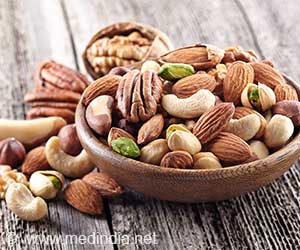Artificial sweeteners or the no-calorie sweetener replaces sugar in the diet, and by doing so, causes increased weight gain instead of weight loss, says a recent study.
Highlights
- Long-term use of artificial sweeteners increases the risk of weight gain, high blood pressure, diabetes and heart disease
- Artificial or nonnutritive sweeteners have negative effects on metabolism, gut bacteria and appetite
- Further research is needed to understand how consumption of artificial sweeteners by pregnant women and their infants affects their health
TOP INSIGHT
The Food and Drug Administration (FDA) establishes Acceptable Daily Intakes (ADI) for each of the artificial sweeteners.
Researchers conducted a systematic review of 37 studies followed by over 400 000 people for an average of 10 years. Only 7 of these studies were randomized controlled trials (the gold standard in clinical research), that involved 1003 people followed over 6 months.
The reports of the trials showed that the artificial sweeteners did not have consistent effect on weight loss. A link between consumption of artificial sweeteners and relatively higher risks of weight gain and obesity, high blood pressure, diabetes, heart disease and other health issues was seen in the longer observational studies.
"Despite the fact that millions of individuals routinely consume artificial sweeteners, relatively few patients have been included in clinical trials of these products, and we found that data from clinical trials do not clearly support the intended benefits of artificial sweeteners for weight management,” said author Dr. Ryan Zarychanski, Assistant Professor, Rady Faculty of Health Sciences, University of Manitoba.
"Caution is warranted until the long-term health effects of artificial sweeteners are fully characterized,” said lead author Dr. Meghan Azad, Assistant Professor, Rady Faculty of Health Sciences, University of Manitoba. Azad also said that there is an increased need for more research to determine the long-term risks and benefits of artificial sweeteners.
What are Artificial Sweeteners?
The Food and Drug Administration (FDA) regulates artificial sweeteners as food additives. Currently, seven artificial sweeteners have been approved by the FDA; acesulfame-potassium, aspartame, luo han guo, neotame, saccharin, stevia (Rebaudioside) and sucralose.
According to the study published in Stroke, the journal of the American Heart Association, American researchers state that daily drinking of at least one artificially sweetened beverage was linked with three times increased risk of developing stroke or dementia.
The FDA establishes Acceptable Daily Intakes (ADI) for each artificial sweetener. ADI is calculated based on the body weight of an individual, which ensures safe consumption of artificial sweeteners without incurring any health risks.
Reference:
- Meghan B. Azad, et al. Nonnutritive sweeteners and cardiometabolic health: a systematic review and meta-analysis of randomized controlled trials and prospective cohort studies. CMAJ July 17, 2017. vol. 189 no. 28 doi: 10.1503/cmaj.161390
- Sugar- and Artificially Sweetened Beverages and the Risks of Incident Stroke and Dementia - (http://stroke.ahajournals.org/content/early/2017/04/20/STROKEAHA.116.016027)
Source-Medindia
 MEDINDIA
MEDINDIA




 Email
Email










